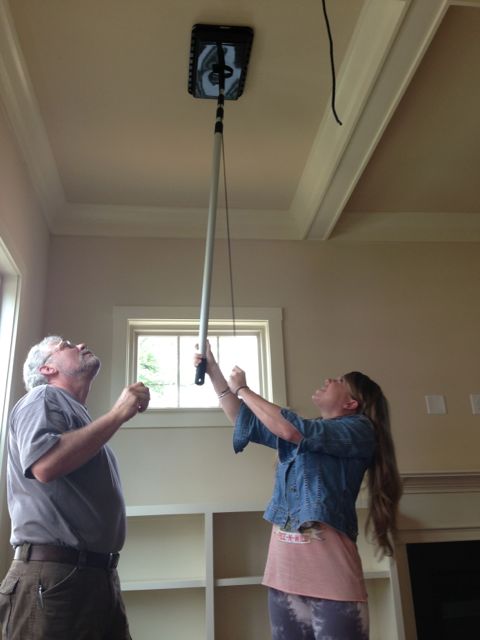Long Live the One-Week HERS Rater Training!

 No, this is not an April Fool’s joke (as much as I do like writing them, even when it’s not 1 April). We’ve abandoned our 8-day in-class HERS rater training format. Beginning with our next class, the in-class part will last five and a half days. Did you catch the clue in that last sentence?
No, this is not an April Fool’s joke (as much as I do like writing them, even when it’s not 1 April). We’ve abandoned our 8-day in-class HERS rater training format. Beginning with our next class, the in-class part will last five and a half days. Did you catch the clue in that last sentence?
No, this is not an April Fool’s joke (as much as I do like writing them, even when it’s not 1 April). We’ve abandoned our 8-day in-class HERS rater training format. Beginning with our next class, the in-class part will last five and a half days. Did you catch the clue in that last sentence?
I’ve been a critic of the one-week HERS rater class for years because it’s just not possible for students to learn everything they need to know in that short a time. Trainers who take this approach—cramming too much information plus site visits plus software practice and then a test at the end of the week—can get 50 to 80% of the students through the training requirements in one week, but at the cost of heads spinning, poor absorption and retention of the material, and students who walk out in silence at the end of the week having just failed the national rater test.
When Energy Vanguard became an accredited HERS rater training provider in 2010, we began offering what I believe was the only 8-day class. We also gave our students up to three chances at passing the national rater test because it’s not an easy test and some people just don’t test well. As a result, we were able to hand out training certificates at the end of the class to those students who met all the requirements.
We’ve also had a really good passing rate on the test. 92% of all the students who have taken our class have passed the national rater test. Two thirds passed on their first attempt. And both of those numbers have gotten better in the last couple of years.
Our new training format
For our next class, we’ve finally taken the plunge and are creating a hybrid training – part in-class, part online. The in-class portion will run from 1 – 6 June, here in Atlanta. The online part will begin the week of 12 May and will include video and exercises as well as live online training.
We’re really excited about the new direction we’re going with out training because one of the drawbacks of the 8-day class has been, as you might expect, low enrollment. Part of that is due to reduced demand for training the last couple of years, but part is also because many people can’t take that much time off for a class, especially if it involves going out of state and spending 10 days away from their families and businesses or jobs.
Another advantage of this format is that it gives students a longer period of time to learn the material. One of my big complaints about the one-week class is that the brain needs time to assimilate new information. Yes, you may be able to learn enough in one week to pass a test, but for that learning to become a part of you, it’s got to be analyzed, accessed, and used over weeks, months, or years.
So, the title of this article doesn’t tell the whole story. Yes, we’re going to a one-week HERS rater training—for the in-class part. But really, we’re extending the length of our training and going to a one-month class!
If you’ve wanted to register for one of our classes but couldn’t take a week and a half off to come to Atlanta, here’s your chance to do it in a week (plus online training). Sign up by the end of 28 April, and you can save $150. And as a special reward for those who read all the way to the end, enter the code SECRETCODE in the comment box when you register, and we’ll give you another $100 off. The deadline for that discount will also be 28 April.
Related Articles
Home Energy Rater Training – A New Approach
Time for a Reality Check on Our 8 Day HERS Rater Training
How to Choose a HERS Rater Training Class
NOTE: Comments are moderated. Your comment will not appear below until approved.
This Post Has One Comment
Comments are closed.


Glad to see you move to a
Glad to see you move to a hybrid training regimen. What took you so long? 😉
This makes sense on several levels. It not only addresses the away-from-home-time issue but helps reduce the huge variation in exposure to building science principals when the rubber meets the road in the classroom.
There was some discussion on hybrid training a couple of years ago in the RESNET BPI group on LinkedIn (requires membership):
http://linkd.in/1qI9jPu
Bill Parlapiano (former BPI Exec.Dir.) made this observation:
“some people do not do well online, some do not do well in a classroom and some do not do well in the field…so this model gives everyone a chance to learn in their comfort zone.”